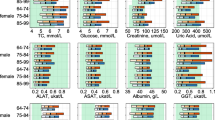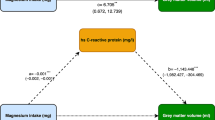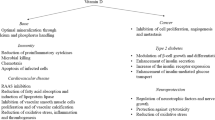Abstract
Objective
To determine the association between long chain omega-3 polyunsaturated fatty acid (n-3 PUFA) supplements intake and cognitive decline in an older Chinese population.
Design
Prospective cohort study. Setting: The Singapore Longitudinal Aging Studies (SLAS), a community-based study in urban region of Singapore. Participants: 1,475 Chinese adults aged ≥55 years.
Measurement
Omega-3 PUFA supplements intake and Mini-Mental State Examination (MMSE) were assessed at baseline. MMSE was reassessed at a median of 1.5 years after baseline and cognitive decline was defined as at least 2-points drop in MMSE score from baseline to follow-up. Odds ratios (ORs) of association between n-3 PUFA supplements intake and cognitive decline were calculated in logistic regression models controlling for baseline confounding variables.
Results
Daily n-3 PUFA supplements intake was significantly (p=0.024) associated with lower risk of cognitive decline (OR=0.37, 95% C.I. 0.16–0.87) after controlling for age, gender, education, number of medical comorbidity, the presence of vascular risk factors/diseases, smoking, alcohol drinking, depression, APOE e4 allele carrier status, nutritional status, level of leisure activities, baseline MMSE and length of follow-up. The association remained significant (p=0.015) after excluding participants with baseline cognitive impairment (MMSE<24), diabetes, stroke, and cardiac diseases (OR=0.23, 95% C.I. 0.07–0.75). No statistically significant association (OR=1.02, 95% C.I. 0.81–1.27) of fish consumption with cognitive decline was found.
Conclusion
Daily n-3 PUFA supplements consumption was independently associated with less cognitive decline in elderly Chinese.
Similar content being viewed by others
References
Fotuhi M, Mohassel P, Yaffe K. Fish consumption, long-chain omega-3 fatty acids and risk of cognitive decline or Alzheimer disease: a complex association. Nat Clin Pract Neurol 2009;5(3);140–152.
Kalmijn S, Feskens EJ, Launer, LJ, Kromhout D. Polyunsaturated fatty acids, antioxidants, and cognitive function in very old men. Am J Epidemiol 1997;145(1);33–41.
van Gelder BM, Tijhuis M, Kalmijn S, Kromhout D. Fish consumption, n-3 fatty acids, and subsequent 5-y cognitive decline in elderly men: the Zutphen Elderly Study. Am J Clin Nutr 2007;85(4);1142–1147.
Morris MC, Evans DA, Bienias JL, Tangey CC, Bennett DA, Aggarwal N, Schneider J, Wilson RS. Dietary fats and the risk of incident Alzheimer disease. Arch Neurol 2003;60(2);194–200.
Morris MC. Docosahexaenoic acid and Alzheimer disease. Arch Neurol 2006;63(11);1527–1528.
Ng TP, Feng L, Niti M, Kua EH, Yap KB. Tea consumption and cognitive impairment and decline in older Chinese adults. Am J Clin Nutr 2008;88(1);224–231.
Ng, TP, Niti M, Chiam PC, Kua EH. Ethnic and educational differences in cognitive test performance on mini-mental state examination in Asians. Am J Geriatr Psychiatry 2007;15(2);130–139.
Kalmijn S, Feskens EJ, Launer LJ, Kromhout D. Cerebrovascular disease, the apolipoprotein e4 allele, and cognitive decline in a community-based study of elderly men. Stroke 1996;27(12);2230–2235.
Niti M, Yap KB Kua, EH, Tan CH, Ng TP. Physical, social and productive leisure activities, cognitive decline and interaction with APOE-ɛ4 genotype in Chinese older adults. Int Psychogeriatr 2008;20(2);237–251.
Posner BM, Jette AM, Smith KW, Miller DR. Nutrition and health risks in the elderly: the nutrition screening initiative. Am J Public Health 1993;83(7);972–978.
Yap KB, Niti M, Ng TP. Nutrition screening among community-dwelling older adults in Singapore. Singapore Med J 2007;48(10);911–914.
Nyunt MS, Fones C, Niti M, Ng TP. Criterion-based validity and reliability of the Geriatric Depression Screening Scale (GDS-15) in a large validation sample of community-living Asian older adults. Aging Ment. Health 2009;13(3);376–282.
Yesavage JA. Geriatric depression scale. Psychopharmacol Bull 1998;24;709–711.
Adamson AJ, Collerton J, Davies K, Foster E, Jagger C, Stamp E, Mathers JC, Kirkwood T, the Newcastle 85+ Study Core Team. Nutrition in advanced age: dietary assessment in the Newcastle 85+ study. Eur J Clin Nutr 2009;63 (Suppl 1);6–18.
Freund-Levi Y, Eriksdotter-Jönhagen M., Cederholm T., Basun H, Fax’en-Irving G., Garlind A, Vedin I, Vessby B, Wahlund LO, Palmblad J. Omega-3 fatty acid treatment in 174 patients with mild to moderate Alzheimer disease: OmegaAD study: a randomized double-blind trial. Arch Neurol 2006;63(10);1402–1408.
Ho RCM, Niti M, Yap KB, Kua EH, Ng TP. Metabolic syndrome and cognitive decline in Chinese elderly: results from the Singapore Longitudinal Ageing Studies. Am J Geriatr Psychiatry 2008;16(6);519–522.
Author information
Authors and Affiliations
Corresponding author
Rights and permissions
About this article
Cite this article
Gao, Q., Niti, M., Feng, L. et al. Omega-3 polyunsaturated fatty acid supplements and cognitive decline: Singapore longitudinal aging studies. J Nutr Health Aging 15, 32–35 (2011). https://doi.org/10.1007/s12603-011-0010-z
Received:
Accepted:
Published:
Issue Date:
DOI: https://doi.org/10.1007/s12603-011-0010-z




